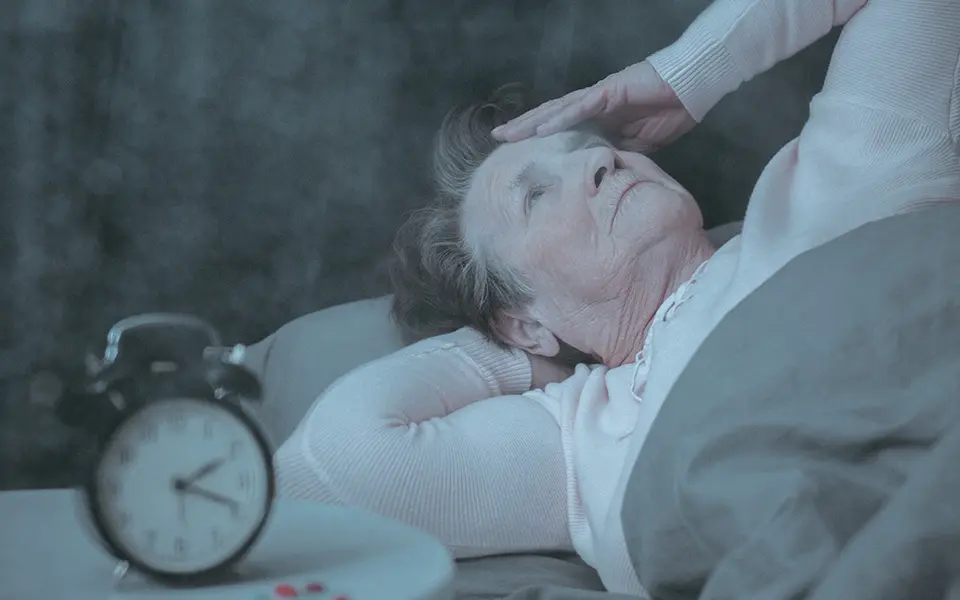February 20, 2024
Addressing Dementia-Related Sleep Issues in Seniors
Sleep is one of the keys to a healthy lifestyle, but dementia can interfere with the process. That’s why taking proactive measures to address sleeplessness is so important. It can support a dementia patient’s mental and physical well-being.

How Does Dementia Affect Sleep?
Dementia alters the part of the brain that serves as an internal clock to regulate the sleep-wake cycle. It also reduces the amount of time spent in slow-wave and REM sleep, which helps revitalize your mind and body.
A cognitive condition, dementia can also affect your loved one’s ability to communicate. That would make it difficult for them to express other issues that are impacting their sleep, such as pain, incontinence or anxiety.
In turn, a lack of sleep can exacerbate your mom or dad’s dementia. Poor sleep can result in a buildup of beta-amyloid and tau proteins in the brain, which further increases the progression of the disease.
Tips for Easing Sleep Issues Caused by Dementia
Establish a Routine
Consistency is key when managing your loved one’s sleep habits. Set specific times for your parent to go to bed and wake up. That can put them in the appropriate state of mind and reduce confusion during those transition periods.
Designate activities for nighttime preparations and morning rituals. For example, bathing and putting on pajamas at night could help your mom or dad understand that they’re getting ready to go to sleep. Opening the curtains and making their favorite drink might indicate it’s time to prepare for the day.
Create a Comforting Sleep Environment
Too many sights and sounds can be distracting and prevent your loved one from falling asleep.
Here are some tips to eliminate disturbances:
- Hang blackout curtains to block streetlights and remaining sunlight.
- Play soft music to create a soothing environment.
- Install motion-activated night lights to provide necessary illumination if your mom or dad needs to get out of bed.
Adjust Eating Habits
Dementia can alter appetite, so your parent’s eating habits may change. Serve light meals in the evenings as a full stomach can make it difficult for your mom or dad to fall asleep. Stimulants like sugar and caffeine disrupt natural sleep patterns, so limit your loved one’s intake before bed.
Seniors should drink plenty of fluids as dehydration can cause urinary tract infections and confusion. However, limiting liquids before bed can reduce the need for nightly bathroom breaks so they can sleep soundly.
Manage Sundowning
Your loved one may experience increased agitation and anxiety during the late afternoon and early evening if they have sundowner’s syndrome. That distress affects their ability to relax and fall asleep.
Reducing stimulation during the evening can ease the effects of sundowning. Remain calm if your mom or dad is upset. Then, remind them where they are and what time of day it is.
Encourage Physical Activity
Daily exercise can ease restlessness and improve sleep. Physical activity can alleviate daytime sleepiness, reducing the need for naps and allowing your loved one to sleep through the night. Getting outside also exposes your parent to sunlight, which helps regulate their internal clock.
Review Medications
Some drugs, including dementia medications, can cause sleeplessness. Your loved one’s physician can inform you of potential side effects and provide alternative options.
Memory Care Services at Embassy Healthcare
Our expert memory care teams can provide your loved one with the professional support they need to maintain their quality of life. We offer comprehensive memory care services in Ohio and Pennsylvania. Contact us for more information.
